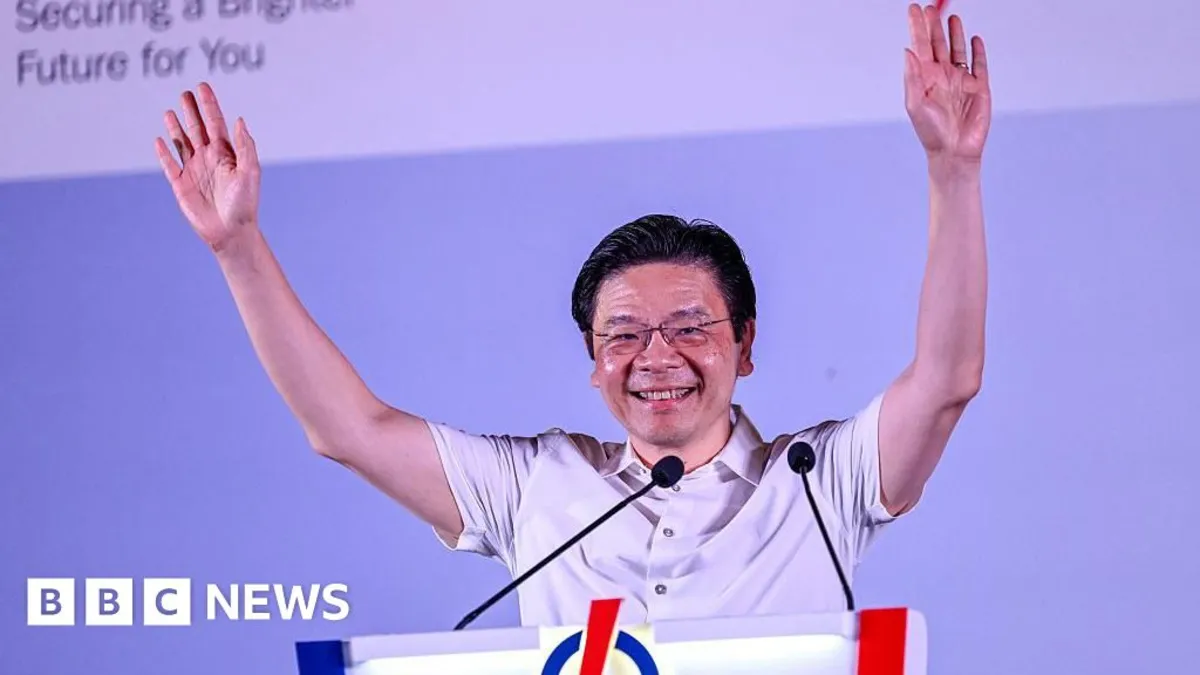
In a decisive election held recently, Singapore's ruling People's Action Party (PAP) emerged victorious, securing a remarkable 65.6% of the vote. This election, which took place under the leadership of Prime Minister Lawrence Wong—his first since assuming the role last year—was heavily influenced by public anxiety regarding the cost of living and the nation's economic future. The PAP's overwhelming majority of 97 seats in parliament reflects a notable shift toward stability amidst growing global uncertainties.
Singaporeans cast their votes amid rising fears surrounding inflation, stagnating wages, and job security. The current economic climate, marked by inflationary pressures and international turbulence, has led many voters to seek comfort in the PAP's long-standing governance. According to Ian Chong, an associate professor of political science at the National University of Singapore (NUS), Singapore's voters are known for their risk-averse tendencies, making the PAP an appealing choice during these tumultuous times.
The opposition, led by the Workers' Party (WP), retained its 10 parliamentary seats but failed to gain additional ground. The PAP, which has been in power since 1959, is one of the world's longest-serving political parties, benefiting from strong support among older Singaporeans who have witnessed the country’s economic progress under its leadership.
Despite the PAP's longstanding dominance, critics argue that the party maintains an unfair advantage through practices such as gerrymandering and controlling the media landscape. Previous elections had seen the PAP's vote share decline, particularly during the 2020 election, which was perceived as a referendum on its handling of the COVID-19 pandemic. However, the recent election results indicate a return to form for the PAP, as voters expressed renewed confidence in Wong's leadership.
In his address following the election results, Wong expressed gratitude to voters, emphasizing that the outcomes would strengthen Singapore's position in a world fraught with turbulence. He characterized the election results as a clear signal of trust and confidence in the government, which will help Singaporeans face future challenges.
While Singapore's economy remains relatively robust, the nation has faced significant inflation in recent years, attributed primarily to external factors such as the Ukraine and Gaza conflicts and ongoing supply chain disruptions. Critics have pointed to a controversial hike in the goods and services tax as a contributing factor to rising costs. With potential economic shocks looming due to the US-China trade war and tariffs, the PAP's campaign centered around promises of stability and experienced governance.
Wong's consistent messaging resonated with voters who sought a steady hand during uncertain times. One PAP supporter, a start-up owner named Amanda, highlighted the challenges her business faces in the current economic climate, stating, "The headwinds are not great, there's a lot of uncertainty… I want a party with experience running the government."
Despite facing scandals in recent years, including issues involving a cabinet minister, these topics had little impact on voters’ decisions, as immediate economic concerns took precedence. Analysts believe Wong's previous leadership of Singapore's COVID-19 taskforce has bolstered his credibility, contributing to the PAP's electoral success. Notably, Wong is the first PAP leader to increase the party's vote share in his inaugural election, defying the trend of previous prime ministers.
The fragmented opposition landscape, featuring 10 competing parties, further aided the PAP's strong performance. While the WP campaigned on issues like lowering the cost of living, they managed to increase their vote share in retained constituencies, solidifying their status as the strongest opposition party despite recent controversies involving former MPs.
In conclusion, the PAP's landslide victory in this election underscores a desire for stability among Singaporeans amidst economic uncertainties. As the ruling party continues its long-standing governance, the political scene remains dynamic, with potential implications for future elections as citizens evaluate their options in a changing landscape.